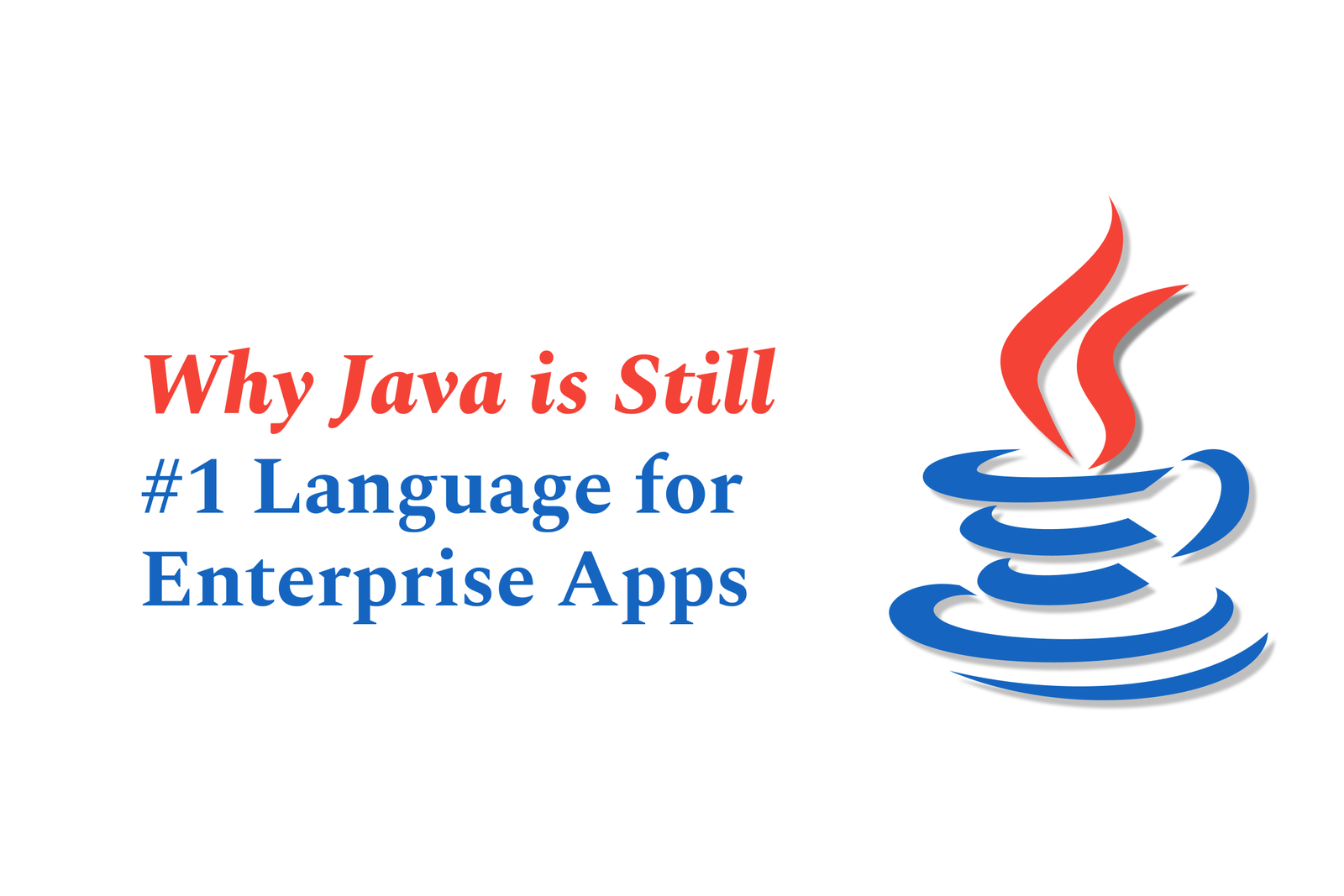Why Java Is Still the #1 Language for Enterprise Apps
Java remains the #1 language for enterprise apps due to its proven stability, strong performance, extensive ecosystem, continuous modernization, and robust security. Its vast community and powerful tools make it ideal for building scalable, reliable, and cost-effective business solutions.
Why Java is Still the #1 Language for Enterprise Apps
1 ) Established Dominance and Widespread Use
Java remains the leading programming language and development platform, extensively used in enterprises worldwide. With millions of developers and over 60 billion Java Virtual Machines running globally, it continues to be the preferred choice for large scale application development.
2 ) Continual Improvements and Modernization
Despite criticisms regarding older versions' verbosity and syntax complexity, modern Java versions and integrated development environments (IDEs) have significantly improved developer productivity. Java's ongoing enhancements streamline coding, reduce boilerplate, and align it with contemporary programming needs.
3 ) Robust Performance, Stability, and Security
The latest Java releases focus on advancing application performance, stability, and security, which are critical for enterprise grade applications. This makes Java a reliable and secure platform capable of supporting complex, mission critical business solutions.
4 ) Comprehensive Ecosystem and Tooling
Java’s ecosystem includes powerful tools such as Oracle's GraalVM, which enables native executables for faster startup and reduced memory consumption, and Java Management Service for efficient deployment and monitoring. These tools help enterprises optimize costs and maintain high application performance.
5 ) Strong Industry and Community Support
Java benefits from vast community support, extensive documentation, and numerous resources including tutorials, analyst reports, and case studies. This extensive backing assists enterprises in innovation, troubleshooting, and adopting best practices.
6 ) Enterprise Grade Capabilities
Java effectively reduces development costs and timelines while driving innovation and improving application services, making it ideal for building scalable, maintainable, and robust enterprise applications.
Summary:
Java’s entrenched position as the #1 language for enterprise applications is supported by its massive global adoption, continuous modernization, robust performance, comprehensive tooling, and strong community and industry backing. These factors collectively ensure Java remains a top choice for enterprises building critical business systems.
https://justacademy.in/news-detail/apple-swift-6.0-released-with-major-changes
https://justacademy.in/news-detail/swiftlint-updates-for-cleaner-code-in-2025
https://justacademy.in/news-detail/why-learn-ios-development-in-2025?
https://justacademy.in/news-detail/android-enterprise-management-features
https://justacademy.in/news-detail/ui-testing-in-flutter:-what's-new?
Related Posts
In 2025, top Angular libraries offer modern, feature-rich components and tools for building dynamic web apps. From powerful data grids to low-code platforms like UI Bakery, these libraries enhance development speed, UI design, and scalability, making them essential for Angular developers.
Migrating from AngularJS to Angular 17 involves gradually upgrading your app by running both frameworks together using tools like ngUpgrade, rewriting components in TypeScript, and adopting Angular’s modern architecture to enhance performance, maintainability, and long-term support.
Angular state management tools help organize and handle app data efficiently, improving scalability and maintainability. Popular options include NgRx for robust, RxJS-based patterns, and newer Signal Store solutions that offer simpler, reactive approaches integrated tightly with Angular’s latest features.
RxJS in Angular empowers developers to manage asynchronous data streams with powerful operators like `forkJoin`, `combineLatest`, and `zip`. Mastering these key operators in 2025 is essential for building efficient, reactive applications that handle complex event sequences seamlessly.
Angular performance optimization in 2025 focuses on improving app speed and responsiveness by using techniques like OnPush change detection, lazy loading, efficient data caching, and AOT compilation. These practices reduce load times, enhance user experience, and ensure scalable, fast Angular applications.
In 2025, Angular remains preferred for large-scale, enterprise apps with its robust, all-in-one framework, while Vue attracts developers seeking simplicity and fast development for smaller projects. Both frameworks excel, with choice driven by project needs and team expertise.
Angular Signals are a new reactive primitive in Angular 16 that enable fine-grained, efficient change detection by automatically tracking dependencies and updating only affected parts of the UI. They simplify state management and boost app performance, revolutionizing Angular's reactivity model.
Angular interview questions to prepare in 2025 focus on core concepts like components, directives, data binding, routing, and dependency injection, along with TypeScript mastery and latest Angular features to ensure strong practical knowledge for building scalable, efficient web applications.
AngularJS reached its official end of support in January 2022, meaning no further updates or security patches. To ensure app security and performance, developers should consider migrating to modern Angular versions or seek third-party long-term support options if immediate migration isn’t possible.
The Angular Roadmap 2025 highlights upcoming features focused on improving developer experience and performance, including zoneless Angular, Signals integration, enhanced Forms, async data handling, improved HMR, and expanded Angular Material/CDK enhancements, driving modern, efficient web app development.










